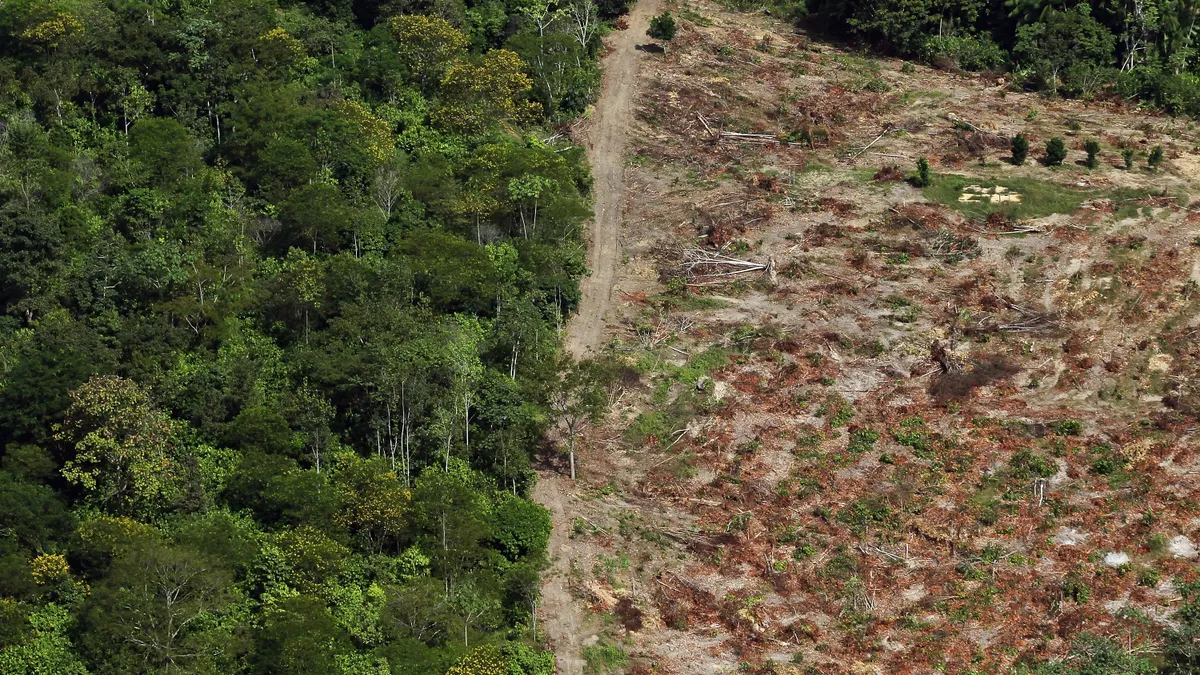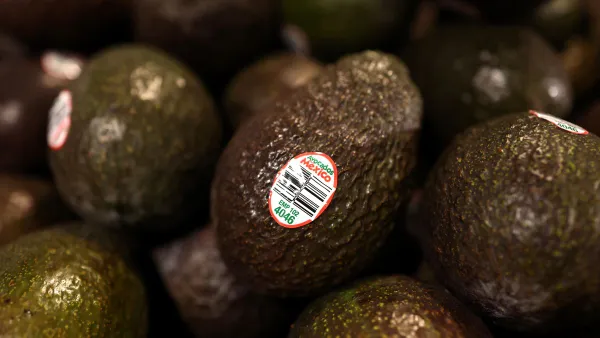Dive Brief:
- Coach’s leather supply chain poses a risk of being linked to illegal cattle ranching in the Amazon rainforest in Brazil, according to a June 24 report from nonprofit group Earthsight.
- Illegal cattle ranching is a key driver in deforestation in the Amazon, per Earthsight. The nonprofit group is calling on the Tapestry-owned brand, as well as other fashion companies with supply chain ties to the region, to ensure there is no leather from deforestation in their products.
- Tapestry sources less than 10% of its leather from Brazil, a spokesperson said in an email to ESG Dive sister publication Fashion Dive, and the company recognizes that tracking raw materials in the region “is complex and imperfect.”
Dive Insight:
Earthsight based its investigation on shipment records, data on Brazil’s cattle sector, court rulings, satellite imagery and interviews, per its report.
The nonprofit found a direct link between Coach’s leather and Frigol, a meatpacking company in Brazil that Earthsight said had an “egregious record of cattle purchases linked to environmental and Indigenous rights abuses,” per the report.
Pará, Brazil, includes a large portion of the Brazilian Amazon, and it has been at the center of what Earthsight called “the Amazon’s destruction.” Between 2001 and 2024, it experienced the highest forest loss of all Brazilian states. Pará is also one of the largest leather exporting states in Brazil, according to Earthsight.
“As deforestation rates in the biome fall to a nine-year low and progress on halting the loss of the Amazon is rightly celebrated, illegal cattle ranching nonetheless continues, driving destruction, encroaching on Indigenous lands and fuelling conflict and human rights abuses,” Earthsight said in the report.
The Earthsight report said that Coach’s sourcing of Brazilian leather, as well as two of its suppliers with supply chains exposed to these harms, “risks its customers being complicit in deforestation and Indigenous rights violations.”
Tapestry is working to improve traceability and transparency in Brazil, a company spokesperson said.
“Tapestry’s values dictate that we stay true to principles and practices of responsible sourcing across our full value chain, including the small proportion of leather sourced from Brazil,” the spokesperson said.
Tapestry made a $3 million grant to the World Wildlife Foundation in 2022 to work specifically on traceability in the leather value chain in Brazil, per the spokesperson. It also helped support the Deforestation Free Fund in 2023.
Tapestry has funded the purchase of 50,000 ear tags for cattle in Brazil, which can improve traceability, and is a supporter of the Global Cattle Traceability Standard, the spokesperson added.
Earthsight’s report also names Fendi, Chloé, Hugo Boss, Louis Vuitton, Chanel, Balenciaga, Saint Laurent and Gucci as brands that have exposure to Brazilian leather due to sourcing from tanneries Faeda and Conceria Cristina. Many of the companies responded to Earthsight saying that the hides sourced from Faeda and Conceria Cristina don’t come from Brazil.











